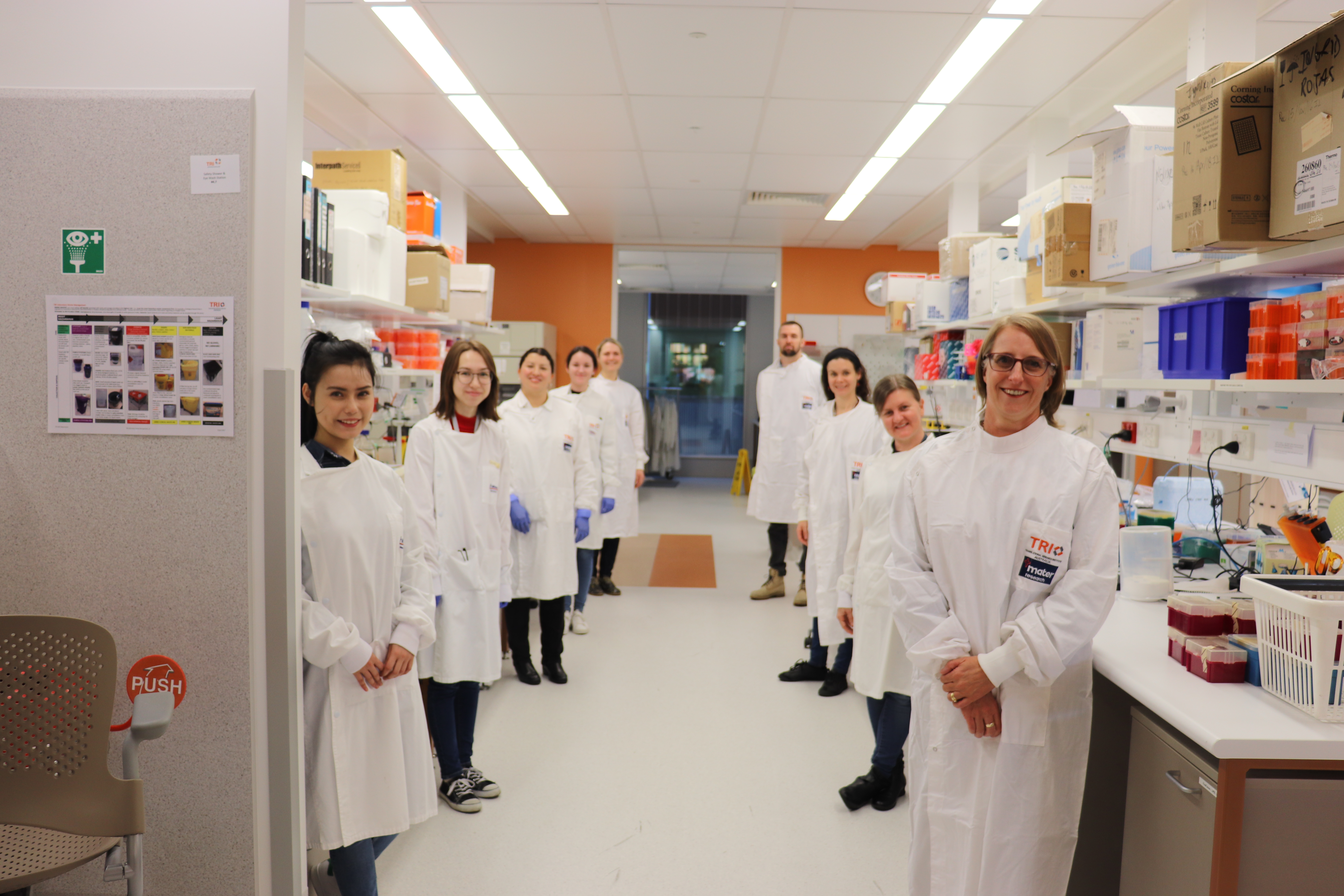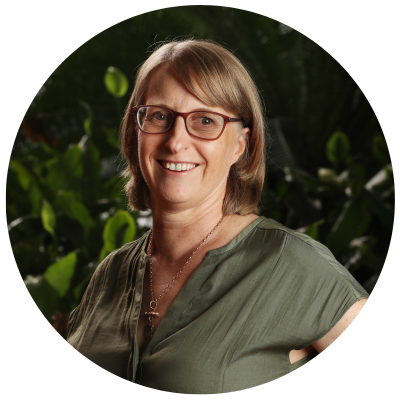YOUR IMPACT
Cancer research
Learn about the latest research efforts and discoveries happening at Mater.
Why making cancer a manageable disease is closer than ever before
Patients battling some of the most lethal cancers may be given new hope thanks to a world-first cancer vaccine that harnesses the immune system to ‘mop up’ remaining cells following conventional treatment such as chemotherapy, surgery and radiation.
Developed at Brisbane’s Mater Research under the leadership of Professor Kristen Radford, the vaccine has the potential to seek out cells that may still be lurking undetected within the body, while potentially preventing secondary cancers.
“The immune system is always looking for and killing off all sorts of invaders in the system including cancer cells, while leaving healthy tissue alone,” Professor Radford said.
“But cancer cells change their disguise over and over again. This means that many are simply not well-recognised by the immune system, so they can proliferate before the immune system realises the body is under attack,” she said.
Thanks to the community support of events just like Brisbane to Gold Coast Cycle for Cancer, Professor Radford and her team are preparing to take the vaccine to a three-stage Phase 1 clinical trial.
It could take as few as three years, and if successful, the vaccine could potentially be used at increasingly early stages of a patient’s cancer progression.

“Decades of research and previous trials by some of the greatest scientists in this field have enabled us to get to this point. What we’ve learned along the way is invaluable,” Professor Radford said.
The vaccine leverages a world-first discovery of an extremely rare and evasive subtype of cell in the immune system called cDC1, which is directly involved in fighting invading cancer cells.
“By using cDC1, we have found a way to train the immune system to then be able to do its job better.
“It works like a guided missile—first the vaccine raises the alarm inside the body that it’s under attack. Next, it shows the body’s defence force what it’s under attack from. And then, it rallies the troops and sends them into battle,” she said.

Current immunotherapy treatments are generally used as a last resort for patients who’ve exhausted all other treatments.
While they can end up being the miracle drug for a small number of patients, the overall success rate varies across cancer types. Sadly, as many as 90 per cent of patients won’t respond at all.
Patients who do respond may often be left with chronic health problems and deformities, coupled with no promise of remaining cancer free.
As the first treatment in the world to leverage the immune cell cDC1, this vaccine has unprecedented specificity to target exactly what it needs to, and where.
It could also overcome many current immunotherapy limitations, such as having to harvest the patient’s own blood and tissue to manufacture enough patient immune cells in the lab, which must then be trained using the patient’s own cancer.
The process can take months—time a patient at this stage of their journey often doesn’t have.
If successful, the team’s vaccine would be an off-the-shelf alternative that could treat a range of cancers including ovarian, breast, prostate, head and neck, bladder, blood and metastatic melanoma.
“You never stop dreaming and imagining that we’ll find the cure, but this vaccine is a huge step on the journey to making cancer a manageable disease,” Professor Radford said.
“Research is painstakingly slow, but this vaccine is the collective result of decades of work by so many pioneers in this field—very little of which would have been possible without the generosity of the community.
“We are standing on the shoulders of giants, and this field has now become my life’s work as well, but it’s only through your support that we have been able to keep going.
“Cancer is the world’s biggest killer, and we are right on the edge of changing the way we treat and manage this disease forever,” she said.












